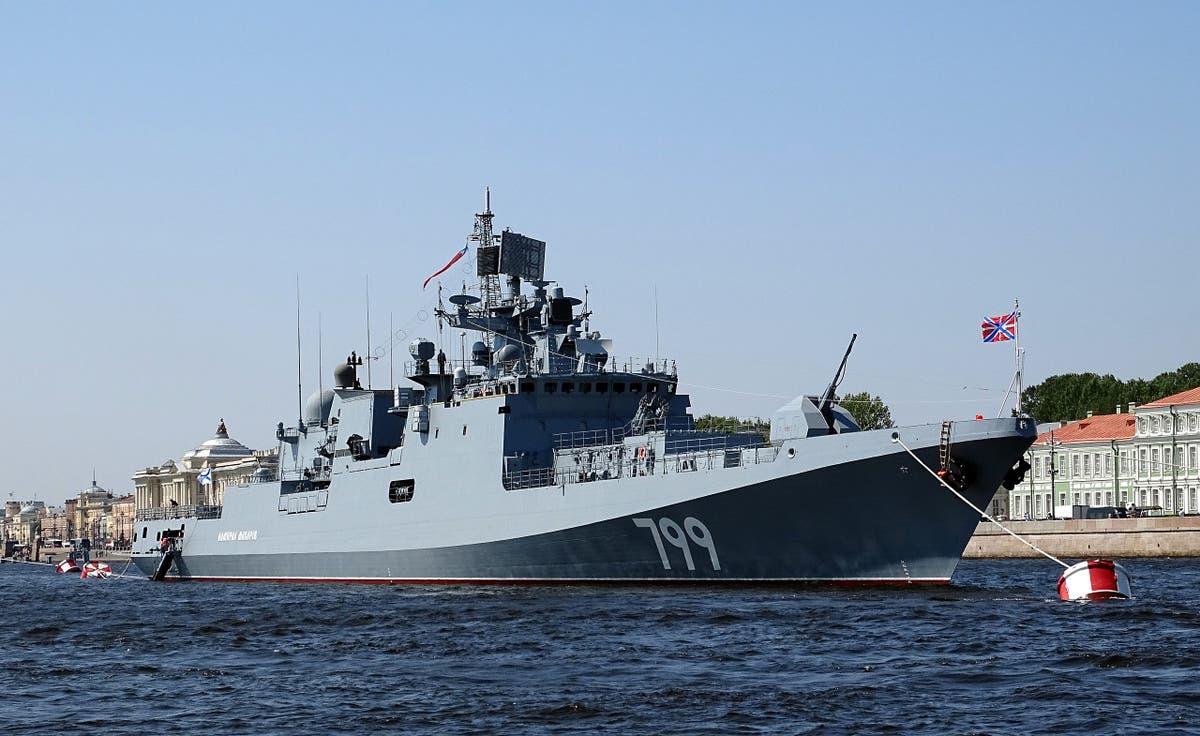We are now on day 75 of Putin's 3-day war. It's remarkable how much conventional wisdom has been overturned during these past few months.
The Russian bear is never as weak as she seems, nor strong as she appears. Napoleon and Hitler thought they could roll in and be done by brunch. The harsh elements, terrain, and Russian willingness to take massive casualties stopped those advances. Now we're seeing the Russians on the receiving end, while assaulting their Ukrainian cousins. The "special military operation" began right when
bezdorizhzhya (Ukrainian for "mud season") started in the region, assuming that it would be over before Putin could do his victory dance through the streets of Kyiv (like Hitler enjoying the view at the Eiffel Tower) after he bravely expelled the "Nazis and drug addicts" from the Ukrainian government. Now that literal mud, which the much vaunted "40-mile Russian convoy" got stuck in, has become a metaphorical quagmire.
Russia has historically had significant trouble with conflicts involving much smaller, outmatched neighbors, which either resulted in a loss or a draw. During the Winter War in 1939, the Soviets were humiliated during their conflict with the Finns. The Russo-Japanese war ended without a decisive victory, the same with the Sino-Soviet border conflict. The Afghan invasion was a drawn out war of attrition with the Soviets ultimately retreating.
We don’t know what is ultimately going to happen in Ukraine. That history is still being written. However, it's clear that the "second most powerful military in the world" is being humiliated by their smaller, less well-equipped neighbor. It appears that Russia is long past the "culminating point", in which their ability to reliably supply their forces is exceeded by demand. Meanwhile, NATO equipment is steadily streaming its way into Ukraine, and Ukrainians are quickly learning how to use those advanced weapon systems, which easily outclass the Soviet-era junk that the Russians are now resorting to. The NATO alliance are following the Friedrich Wilhelm von Steuben methodology, meaning they are training the teachers, who will then pass that knowledge to operators who will deploy that weaponry on the battlefield.
The Russian military, at least on paper, shouldn’t be having this level of difficulty, but Russian propaganda reaches far outside its borders, and Kremlin hubris knows no bounds. That being said, I think there needs to be a serious analysis of Western governments' pre-war assessments. According to reliable press reports, the U.S. government originally expected Ukraine to fall within the first 96 hours. (Which explains the offer to Zelenskyy for a one-way ticket out of Kyiv courtesy of the United States Air Force.)
Thus far, Putin has managed to unite NATO, something they couldn't do on their own. Ukraine is now a de-facto unofficial member of NATO, training to use NATO weaponry, tactics, and communication standards. Moldova is looking to join the EU and is now also receiving weaponry and military aid, and Finland and Sweden will be NATO members within months. Important Russian neighbors, including South Korea and Japan, are strongly aligned with NATO sanctions, Japan is now taking a more active stance toward self-defense, and reticent bystanders like Israel are joining in with other democratic countries to oppose Russian aggression. The Russians haven't achieved a single objective that Putin laid out, his goal of stopping NATO expansion is having the opposite effect, the Ruble is collapsing as Russia inches closer to becoming a Chinese client state, and it will take the Russian military a decade to recover to pre-war levels. On top of that, at least nine generals and dozens of senior officers have been killed in action; collective experience and knowledge that can't be replaced. Although fluid, current analysis shows that Ukraine has now seized back territory that the Russians held before the start of the war. Hence, not only are the Ukrainians holding ground, but gaining territory in Donbas. Thus far, this looks like one of the greatest geopolitical blunders in history, and it's entirely the fault of one man.
I realize that politics, unfortunately, are injected into everything these days. However, I think serious questions need to be asked about the highly inaccurate analysis done by the best and brightest minds inside the Pentagon. There are plenty of well-intentioned people
from both U.S. political parties that would be well-suited to oversee such an endeavor. I understand that there are always going to be significant disagreements between the right/left divide, it's nothing new, today's Republicans and Democrats were mirrored two millennia ago by the Populares and Optimates in ancient Rome. As much as it may feel imperative in the moment, particularly with a 24/7 news cycle with internet and cable news, none of this is unique or special. Regardless, hopefully that ideological conflict can be put aside, and an independent non-partisan analysis can be done concerning the failings of the military defense establishment's ability to foresee both Russia's inherent structural weaknesses, and lack of preparedness for a sustained conflict with a bordering country, one which on paper appeared to be at a significant disadvantage. This shouldn't be about assigning blame (we all know the fault lies with Vladimir Putin) but being better prepared for future conflicts.
On a more fundamental level, I'm shocked at how quickly Russian supply lines collapsed. (Notably aided by Belarusian dissidents who sabotaged freight railways at the beginning of the war.) The pictures of old mothballed Soviet-era tires being outfitted on modern machinery and extensive reliance upon civilian vehicles painted with a "Z" to connote them as Russian friendlies are striking. The complete lack of shipping pallets for transport tell us more than any of the videos featuring exploding Russian military equipment ever will.
It's like the old joke where an American general told a Russian general that U.S. troops eat three times the calories per day compared to their Russian counterparts, and the Russian general replied, "That's impossible, no one can eat three bags of potatoes every day!".

www.vice.com




